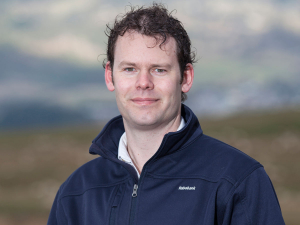A rosy outlook on sheepmeat needs to be slightly tempered by market realities, one meat company suggests.
A Rabobank report by animal proteins analyst Blake Holgate says prices to late-season October as high as mid $8/kg can be expected. And possibly even higher.
Alliance general manager livestock and shareholder services Heather Stacy says prices are firm in their key markets.
“But we need to be mindful of issues such as Brexit coinciding with our chilled lamb programme for the UK and the wider potential for volatility with foreign exchange levels,” she told Rural News.
“As a cooperative, it is important to us that sheepmeat price levels are sustainable for farmers over the long term.”
Beef + Lamb NZ’s chief economist Andrew Burtt says broadly they agree with Holgate. But BLNZ is a bit more conservative than his “at least as high as the mid $8 mark per kilo we saw last year” for the remainder of the season.
“Our view is that prices will be about $8.40/kg on average for all lambs during the fourth quarter of the meat export season, ie July-September,” Burtt told Rural News.
“We are in the process of preparing our New Season Outlook which considers the factors.”
Holgate says restricted global supplies and strong international demand are set to keep sheepmeat prices at elevated levels,
Holgate said in a recent podcast — New Zealand sheepmeat – Mid-year Outlook — that strong market fundamentals during the current season had given sheep farmers healthy returns in recent months. These fundamentals are set to persist for at least the rest of 2019.



















